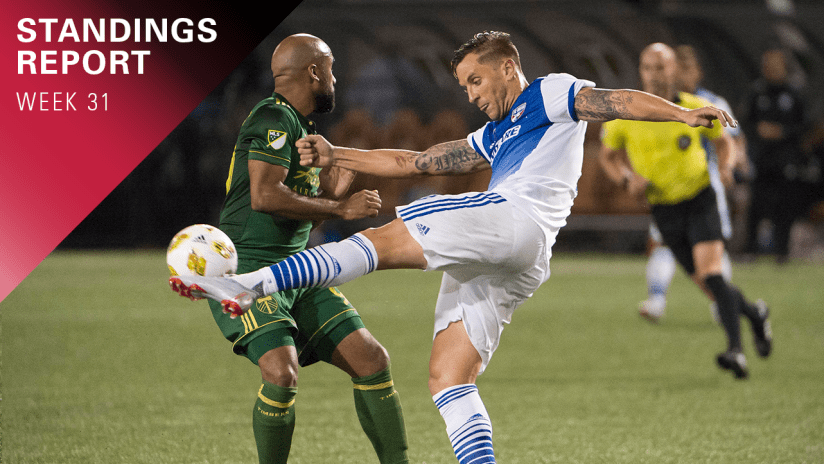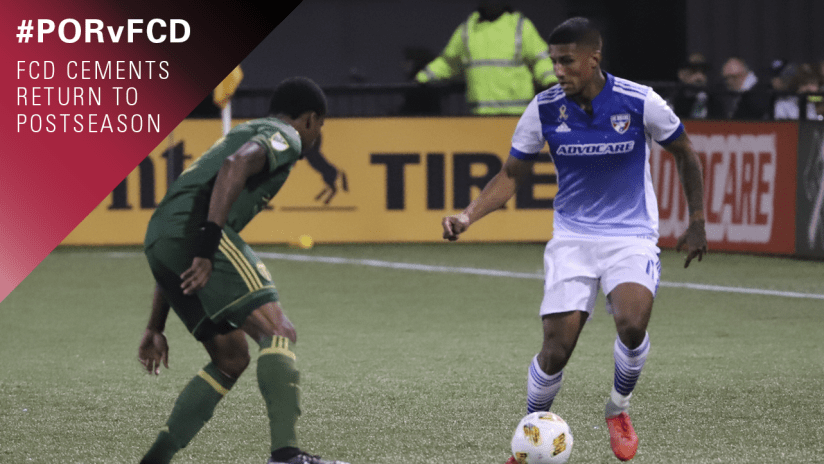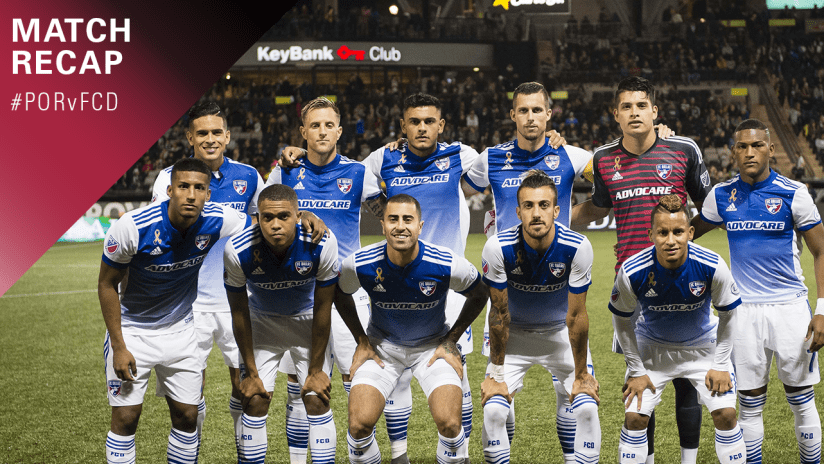FRISCO - A 0-0 draw can often leave a lot to be desired, but there's a lot to takeaway from FC Dallas' stalemate in Portland on Saturday night - most importantly clinching a spot in the postseason.
Before we look ahead to Saturday's home match vs. Orlando City, let's dive into what we learned from #PORvFCD.

FREQUENCY RIGHT, DEPTH LEFT
As Dallas continues to try and build through their wings in the attack, Saturday night saw an interesting trend on either side.
Time and time again, FCD would start their attack down the right side with Michael Barrios and an overlapping Reggie Cannon. Dallas, though, couldn’t beat Jorge Villafaña and Diego Chara to get the ball deep. Instead, after a series of short, frequent passes between Barrios, Cannon and Carlos Gruezo, a quick switch of the field to the left side allowed Santiago Mosquera and Marquinhos Pedroso to exploit Alvas Powell on the overload. There, the attack was able to get the depth to the end line they weren’t able to get on the right.
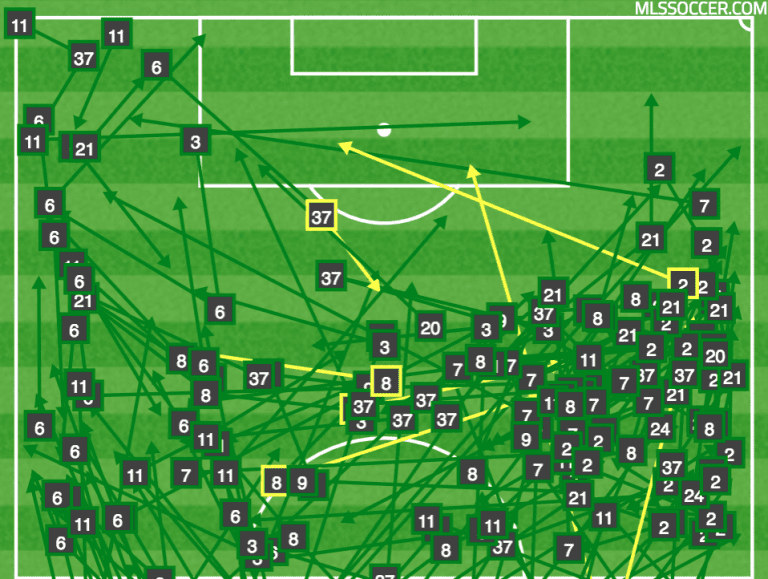
FCD completed passes
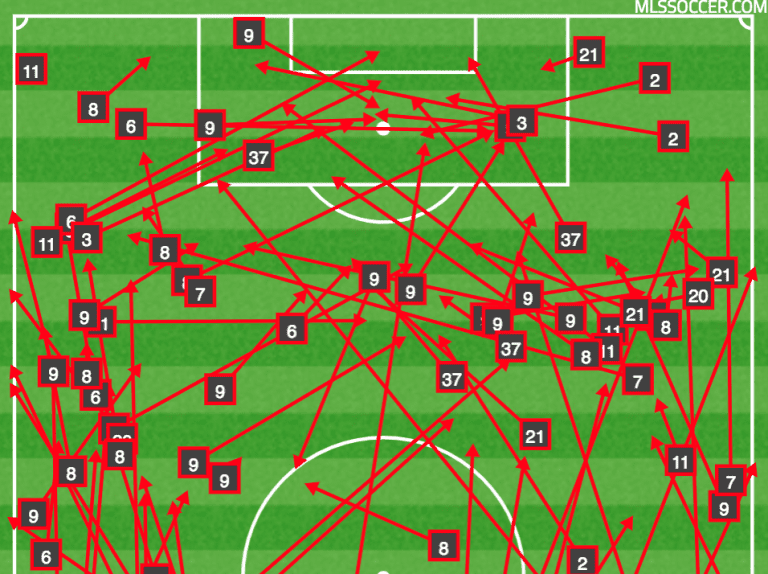
FCD incomplete passes
Where FCD still needs to improve is making the connection into the box after that switch. They were able to get into good spaces on the setup, but connecting on that cross into the box still wasn’t working.
Once Powell came out injured in the 62nd minute, Dallas’ attack down the left dried up. Bringing on Zarek Valenitin actually helped shore things up for the Timbers.

CLOSING IT OUT
Anytime you head to Providence Park, it’s an intense match. Doing so in late September with crucial points on the table for the home side, it might as well be November already.
FCD came out firing on Saturday from the opening whistle, dominating possession in the opening five minutes before the Timbers settled in and controlled much of the following quarter hour. Dallas responded and controlled the ball for the majority of the end-to-end opening frame.
To start the second, the visitors continued their game for the next 20 minutes, creating four shots and a couple promising sequences before Portland began to press for the opener, chasing their own playoff lives.
For the second straight week, Maynor Figueroa came on over the final 10 minutes to create a five-man back line and help secure a point on the road. Last week, it helped open space behind the Vancouver pressure and led to the game-winner. This week, it went just as drawn up, closing out the match with a 0-0 result.
On the road with four weeks to play, a point goes a long way. It was what Dallas needed to clinch their playoff spot and in a two-legged series on the road, it’s what you need as a top seed to get back home at least level on aggregate.
If you’re chasing a game, Pareja would obviously make vastly different substitutions, but in being able to close out two consecutive matches on the road, Dallas is showcasing a new strength in an area where they’ve struggled at times this season.

WORK STILL TO DO
Holding a four-point lead over the No. 3 spot with four games left, Dallas is left likely six points from securing a top-two seed in the West. Six points would also see Oscar Pareja hit the 60-point mark for the third time in the last four seasons - something he became the first coach to do in back-to-back years in 2015 and 2016.
With a head-to-head meeting vs. Sporting KC three weeks away and SKC also facing LAFC - who hold that No. 3 seed - on Decision Day, . The dropped points over the course of those matches would put one of the three in the driver’s seat for the top spot.
Outside the top three, Seattle is the only team that could throw its hat in the ring for a top spot, but would need to win out and even then, could only reach a 59-point ceiling. Portland and RSL still have to face each other twice with a current 57-point maximum, a number Dallas is three points from.


